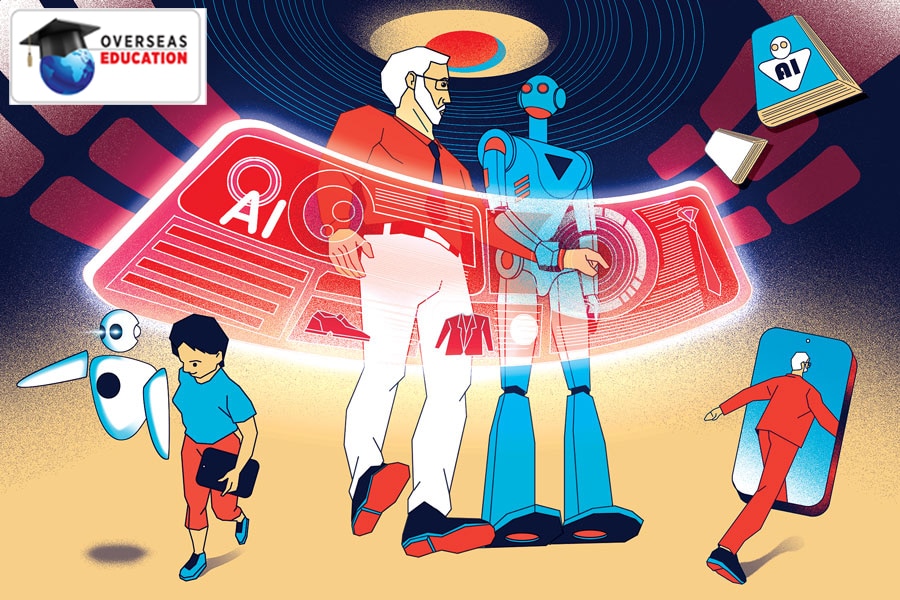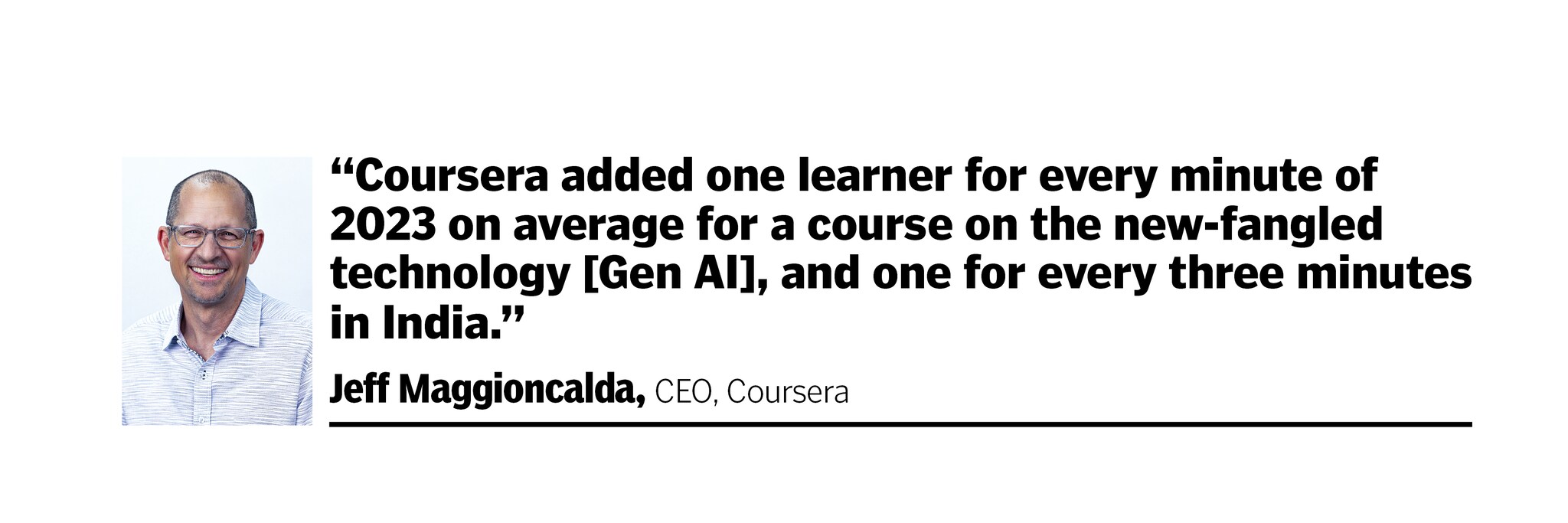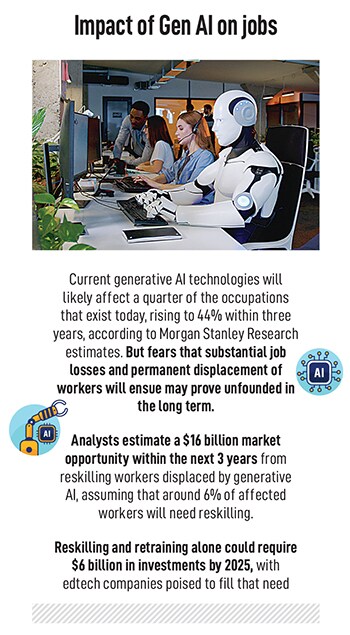
Generative AI in the classroom: Next edtech evolution
Revision bots, design-your-own-course companions, even mock interview coaches: Experts say that edtech is facing disproportionate disruption from generative AI, and interestingly, from older, non-tech learners in India
 Illustration: Chaitanya Dinesh Surpur
Illustration: Chaitanya Dinesh Surpur
You’re gearing up for a big exam, and solving your way through that seemingly endless question bank. When your teacher gets to assessing it two days later, you realise you’ve got a concept all wrong, and need to cycle through the questions all over again. It isn’t possible for the teacher to be present immediately to assess every student, to correct them as they go along—or is there?
The ‘revision bot’ is an application of artificial intelligence (AI), and more specifically, generative AI (Gen AI) that the edtech (education technology) sector is excited about. Now, when you’re unsure of a concept while going through study revisions, you can simply ‘ask’ the revision bot, who will trawl through content videos, text and so on and offer you a neat, conversational summary or explanation. Still have doubts? Ask again. And again. At any time of day.
Edtech is, perhaps, one of those sectors that’s going to see a disproportionate disruptive impact from Gen AI. In fact, US edtech giant Coursera’s CEO Jeff Maggioncalda says the advent of ChatGPT meant that he lost sleep for a good 45 days, tearing apart the nuts and bolts of the large language model. People wanted to learn about Generative AI, and fast, and industry would have to keep up.
When Maggioncalda logs on to a Zoom call with Forbes India from a Tokyo hotel room, a good 15 months after ChatGPT first took off, he’s on a long East-to-West journey that culminates in Boston, where he will speak at Harvard Business School about how companies can adapt to the world of Gen AI.
Coursera, he says, added one learner for every minute of 2023 on average for a course on the new-fangled technology—and one for every three minutes in India. The most popular course is on prompt engineering by Vanderbilt University, which, at the time of writing, more than 240,000 people had enrolled in, and which had an average rating of 4.8 stars.






 At long-time skills and talent development firm NIIT, management took the decision to run special AI sessions for learners in the middle of last year, and also integrate generative AI into wherever applicable, to allow learners to keep up with skills that will soon be needed.
At long-time skills and talent development firm NIIT, management took the decision to run special AI sessions for learners in the middle of last year, and also integrate generative AI into wherever applicable, to allow learners to keep up with skills that will soon be needed. A company statement sent to a Forbes India query stated: ‘There are several different reasons why we made this adjustment to our contractor workforce. In some cases, it was simply a matter of short-term projects reaching their conclusion. Another factor is how we’re prioritising course development in 2024, choosing to focus more on our larger language courses. We’re also shifting to a shared content model where more content is re-used between our 100+ courses, which requires fewer people. While AI was a factor in some of these contractor decisions, it’s inaccurate to attribute all of these changes to AI.’
A company statement sent to a Forbes India query stated: ‘There are several different reasons why we made this adjustment to our contractor workforce. In some cases, it was simply a matter of short-term projects reaching their conclusion. Another factor is how we’re prioritising course development in 2024, choosing to focus more on our larger language courses. We’re also shifting to a shared content model where more content is re-used between our 100+ courses, which requires fewer people. While AI was a factor in some of these contractor decisions, it’s inaccurate to attribute all of these changes to AI.’



